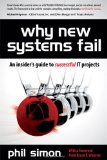ERP (Enterprise Resource Planning) Overview covers What is ERP, Brief history of ERP, Why is it necessary, Market Leaders and the future of ERP. What is ERP? Enterprise Resource Planning or ERP is an industry term for integrated, multi-module application software packages that are designed to serve and support multiple business functions. An ERP system can include software for manufacturing, order entry, accounts receivable and payable, general ledger, purchasing, warehousing, transportation and human resources. Evolving out of the manufacturing industry, ERP implies the use of packaged software rather than proprietary software written by or for one customer. ERP modules may be able to interface with an organizations own software with varying degrees of effort, and, depending on the software, ERP modules may be alterable via the vendors proprietary tools as well as proprietary or standard programming languages.
Brief History of ERP The focus of manufacturing systems in the 1960s was on Inventory control. Most of the software packages then (usually customized) were designed to handle inventory based on traditional inventory concepts. In the 1970s the focus shifted to MRP (Material Requirements Planning) systems that translated the Master Schedule built for the end items into time-phased net requirements for the sub-assemblies, components and raw materials planning and procurement.
In the 1980s the concept of MRP II (Manufacturing Resources Planning) evolved which was an extension of MRP to shop floor and Distribution management activities. In the early 1990s, MRP II was further extended to cover areas like Engineering, Finance, Human Resources, Projects Management etc i.e. the complete gamut of activities within any business enterprise. Hence, the term ERP (Enterprise Resource Planning) was coined.
Why is it Necessary? By becoming the integrated information solution across the entire organization, ERP systems allow companies to better understand their business. With ERP software, companies can standardize business processes and more easily enact best practices. By creating more efficient processes, companies can concentrate their efforts on serving their customers and maximizing profit.
Market Leaders The top five ERP vendors, SAP, Oracle Corporation, Peoplesoft, Inc. (now Oracle Corp.), JD Edwards & Company, and Baan International, account for 64 percent of total ERP market revenue. These vendors continue to play a major role in shaping the landscape of new target markets, with expanded product functionality, and higher penetration rates. SAP dominates the $6.7 billion ERP applications market in Europe with 39% market share. Oracle and PeopleSoft come second and third respectively, followed by SAGE Group and Microsoft Business Solutions.
The Future of ERP Industry analysts expect that every major manufacturing company will buy the software, which ranges in cost — with maintenance and training — from hundreds of thousands of dollars for a small company to millions for a large company. AMR Research of Boston says consolidation among the major players will continue and intensify. ERP vendors are expected to put more effort into e-commerce, CRM and SCM initiatives, with leaders redirecting between 50% and 75% of their R&D budget to these projects.
According to Gartner research group, the rapid evolution of ERP has already lead to a new corporate must-have, ERP II, which is supposed to help businesses gain more competitive edge in the future. The major difference is that ERP II involves collaborative commerce, which enables business partners from multiple companies to exchange information posted on eCommerce exchanges.
In the next tutorial we will talk about popular ERP Products and the Modules and Application related to them.
For more visualization of this article along with the screen shots and more visit with step by step instructions, http://www.exforsys.com/content/category/17/260/342/
Exforsys is a community of developers specializing in C, C++, C#, Java, J2EE, .NET, PeopleSoft, SAP, Siebel, Oracle Apps., Data warehousing, Oracle/SQL Server/DB2 and Testing. Please visit http://www.exforsys.com for more tutorials and for Interview questions http://www.geekinterview.com is an open database.
